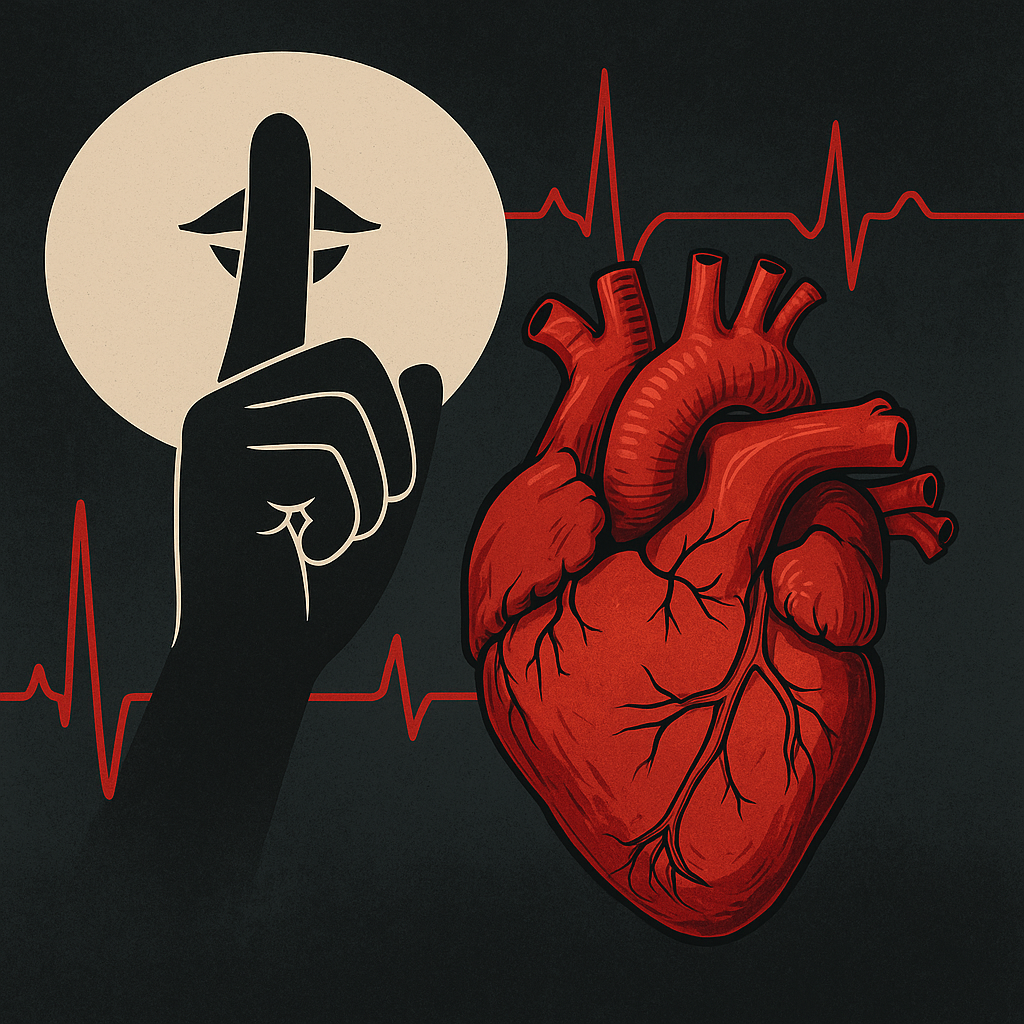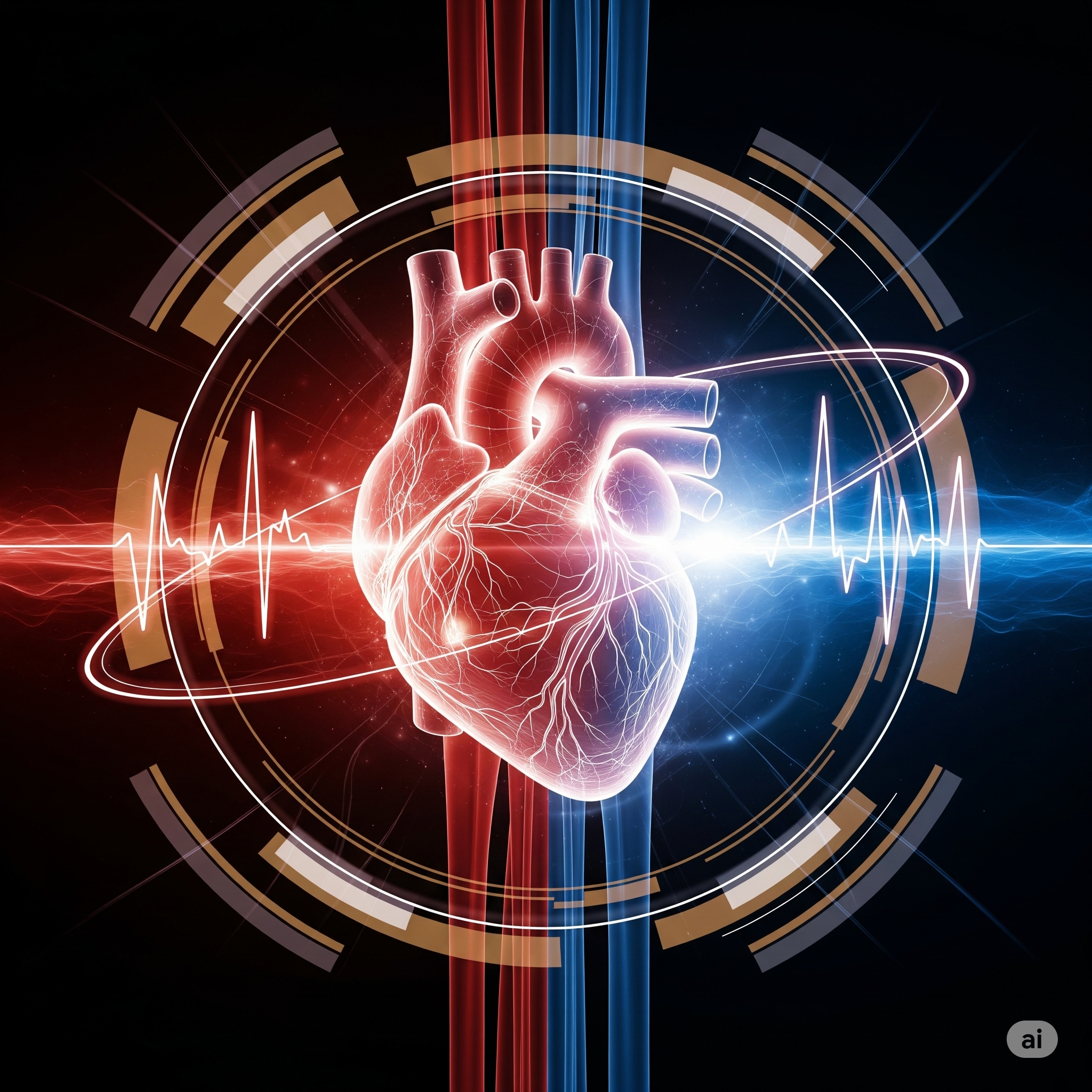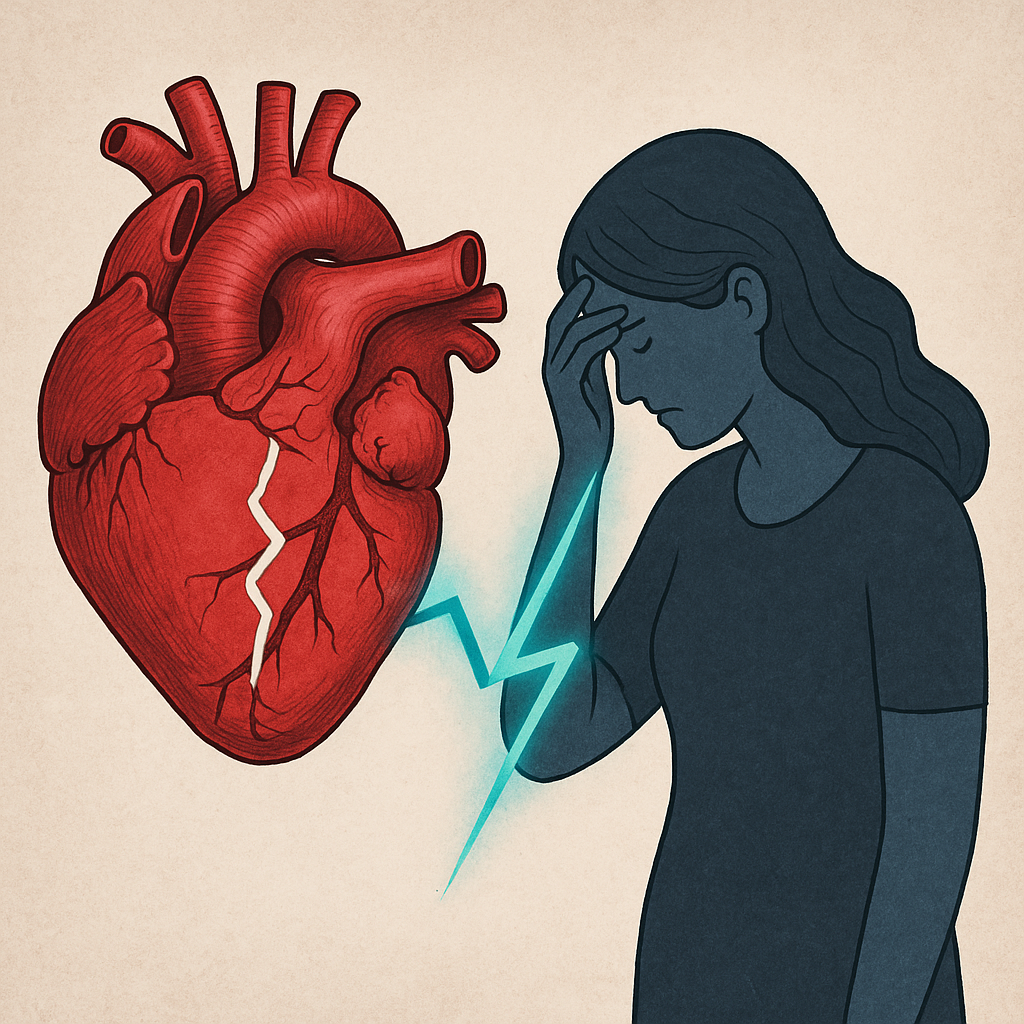Introduction
You may imagine a heart attack as a dramatic event — sudden chest pain, collapsing to the ground, and being rushed to the emergency room. But what if your heart was in trouble and you had no idea? This is the silent heart attack: a potentially deadly event that often goes completely unnoticed.
Silent heart attacks account for up to 45% of all heart attacks, according to the American Heart Association. They leave behind damage just like typical heart attacks, but without the telltale warning signs. This article explores what silent heart attacks are, why they’re so dangerous, who’s most at risk, and how you can protect yourself — before it’s too late.
What Is a Silent Heart Attack?
A silent heart attack (also known as a “silent myocardial infarction” or SMI) occurs when the blood flow to a part of the heart muscle is blocked, but the person does not feel or recognize the classic symptoms. Unlike traditional heart attacks that come with crushing chest pain, silent heart attacks may manifest as:
- Mild discomfort mistaken for indigestion
- Brief fatigue or breathlessness
- Pain in the neck, jaw, or upper back
- Sweating or dizziness without clear cause
Because these signs are vague or minimal, many people brush them off. Unfortunately, the damage is real: part of your heart muscle still dies from lack of oxygen, and this can increase your risk of future, more dangerous heart events.
Why Are Silent Heart Attacks So Dangerous?
The silent nature of these attacks means they often go undiagnosed for weeks, months, or even years. Many people discover they’ve had a silent heart attack only when they get an electrocardiogram (EKG) for another reason, or during cardiac imaging for unrelated symptoms.
Here’s why they’re particularly dangerous:
- No Immediate Medical Help: Without knowing you’re having a heart attack, you miss the critical window for treatments that could reduce damage.
- Cumulative Risk: A silent heart attack doesn’t just go away — it leaves scar tissue that weakens the heart.
- Higher Mortality Risk: Studies show people who’ve had an undiagnosed heart attack are at greater risk of sudden cardiac death and heart failure.
Who’s Most at Risk?
Silent heart attacks can happen to anyone, but some groups are especially vulnerable:
1. People with Diabetes
Diabetes can damage the nerves that carry pain signals, a condition called diabetic neuropathy. As a result, a person may not feel chest pain even during a major cardiac event.
2. Women
Women are more likely to experience atypical heart attack symptoms, such as nausea, fatigue, or shortness of breath. These may not be recognized as warning signs.
3. Older Adults
Seniors may attribute symptoms to aging or unrelated health issues, like arthritis or acid reflux, and may ignore them.
4. Smokers and Hypertensive Individuals
Both smoking and high blood pressure damage blood vessels over time, increasing the risk of coronary artery disease and silent infarction.
5. People with a Family History of Heart Disease
Genetics plays a key role. If your close relatives had heart problems at an early age, you may be predisposed to subtle or unusual presentations.
Subtle Signs You Shouldn’t Ignore
It’s essential to tune into your body. Watch out for:
- Unexplained fatigue even with rest
- Shortness of breath without exertion
- Lightheadedness or fainting
- Upper abdominal pressure that mimics heartburn
- Cold sweats not caused by temperature or illness
- Sudden sleep disturbances or anxiety during the night
If these symptoms come on suddenly or seem “off” compared to your usual health, seek medical attention — especially if you have known risk factors.
Case Study: The Missed Warning
Consider Jane, a 58-year-old woman with type 2 diabetes and high blood pressure. She felt slightly nauseous and unusually tired for a few days but didn’t think much of it. Months later, during a routine check-up, her doctor noticed an abnormal EKG. An echocardiogram confirmed she had suffered a heart attack, likely during that “odd” week. Jane never knew.
Her story is not rare — and it highlights the importance of proactive screening.
Diagnosing a Silent Heart Attack
Silent heart attacks are often discovered after the fact, but there are tools that can help uncover them:
✅ Electrocardiogram (EKG):
Detects electrical abnormalities in heart rhythm that indicate past infarction.
✅ Troponin Blood Test:
Elevated troponin levels suggest recent heart muscle damage — even without symptoms.
✅ Echocardiogram:
Uses ultrasound to show damaged areas of the heart wall.
✅ Stress Test or Cardiac MRI:
Reveal reduced blood flow or scarring that signals previous silent events.
How to Prevent One
Prevention is the most powerful tool. You can reduce your risk significantly by:
🥦 Controlling Risk Factors
- Keep your blood sugar, blood pressure, and cholesterol within healthy ranges.
- Quit smoking, if applicable.
- Manage weight and reduce waist circumference.
🏃 Staying Physically Active
Aim for at least 150 minutes of moderate aerobic activity per week. Regular walking is enough to improve cardiovascular fitness.
🧘 Managing Stress
Chronic stress and poor sleep can harm your heart. Mindfulness, therapy, or even deep-breathing exercises can help regulate your nervous system.
💊 Taking Prescribed Medications
Don’t skip statins, antihypertensives, or blood thinners if they’ve been recommended. They reduce your risk of both silent and major heart events.
🩺 Regular Screening
Annual check-ups with EKG and labs can help catch early signs of silent cardiovascular disease — especially if you’re diabetic or have a family history.
Should You Be Worried?
If you’re over 45, have diabetes, high blood pressure, smoke, or have a family history of cardiac events, then yes — you should take silent heart attacks seriously. But worry is not the goal — awareness is.
Understanding that heart attacks don’t always come with warning bells empowers you to take your health into your own hands. Prevention, early detection, and lifestyle management are your allies.
Final Thoughts
Silent heart attacks are not rare — they’re just silent. But silence doesn’t mean harmless. If left undetected, they can shorten your lifespan and lead to severe complications like heart failure.
The good news? You can outsmart a silent killer by staying informed, being proactive, and not dismissing unusual symptoms. Your heart speaks. Sometimes in whispers — it’s your job to listen.


